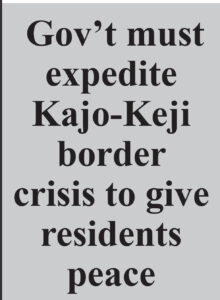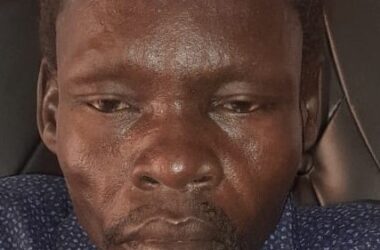
The summit between South Sudanese and Ugandan leaders to resolve signals more than a diplomatic gesture but needs to be expedited.
While most government’s committees take more time to bring solutions, the current crisis in Kajok-keji needs to be resolved urgently.
Despite progress in engagement between South Sudan and Ugandan governments and the border crisis, there is a need to expedite the process in order to ensure peace among the residents.
The residents directly affected by the encroachment continue to suffer with no immediate solution.
With a 14-member committee ready to guarantee that a solution to the border issue is realized, there is a need to ensure that the results are achieved sooner.
While the most pressing issue remains unresolved in addition to the lack of formal border demarcation, it is time for both countries to work hard.
The reminder from Uganda’s military brass of historical cooperation between Uganda and South Sudan is timely, but goodwill alone cannot substitute legal clarity.
For nearly six decades, disputed lines on maps have translated into real suffering for civilians caught in the crossfire.
The absence of defined boundaries fuels misinformation, militarization, and displacement. It also undermines local economies, as farmers and traders operate in fear.
The call for more time and deeper dialogue by the county commissioner is valid. However, time must be matched with tangible steps: joint border commissions, satellite mapping, and community-led monitoring.
The presence of armed forces in farming zones like Nyainga Muda continues to deter resettlement, even as farmers risk their lives to return.
This paradox reveals the urgency of translating high-level resolutions into grassroots realities.
If left unaddressed, the border dispute risks becoming a permanent fixture of regional instability. The Kajokeji summit must be a launchpad, not a placeholder for decisive action.



